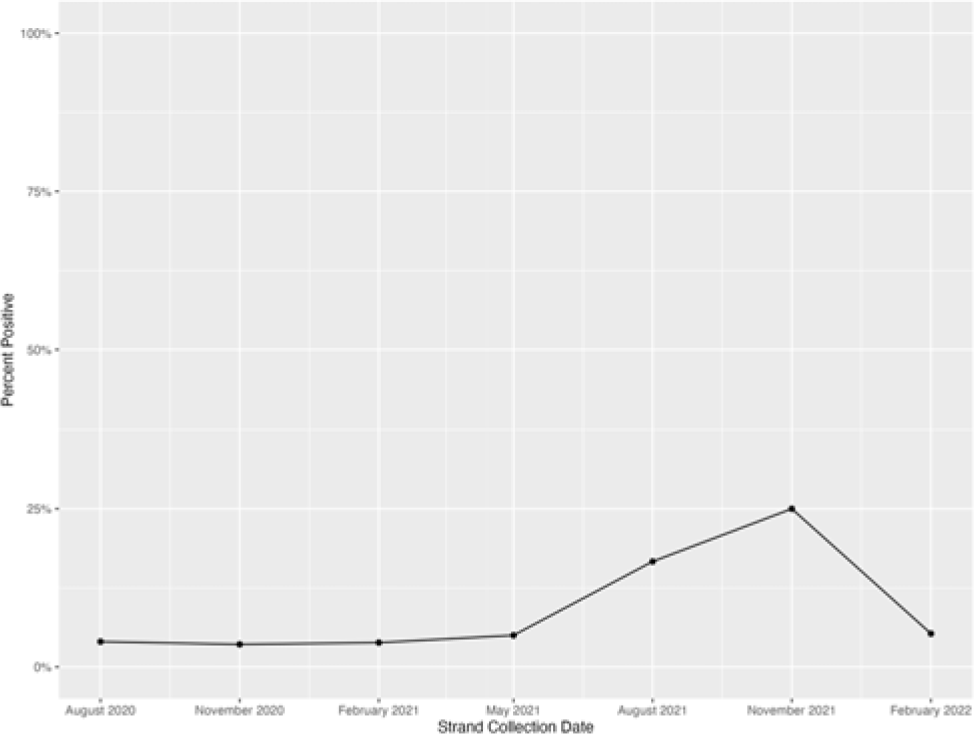No CrossRef data available.
Published online by Cambridge University Press: 29 September 2023
Background: Many hospitals have implemented admission SARS-CoV-2 testing to evaluate for the need for transmission-based precautions. However, a positive test in an asymptomatic patient may represent (1) active infection, signifying infectiousness; (2) false positivity; or (3) past infection with prolonged viral shedding. We used a strand-specific SARS-CoV-2 reverse real-time polymerase chain reaction (rRT-PCR) assay to assess infectivity among asymptomatic patients with a positive SARS-CoV-2 PCR admission test. Methods: We used a 2-step rRT-PCR specific to the minus strand of the SARS-CoV-2 envelope gene. We reviewed records of patients with a positive SARS-CoV-2 PCR who were also tested for the strand-specific SARS-CoV-2 PCR within 2 days of admission at Stanford Health Care during July 2020–April 2022. We restricted our analysis to each patient’s first test. We calculated the percentage of detectable minus strand-specific tests among asymptomatic patients over time and gathered descriptive statistics for age, sex, and immunocompromised state. Results: In total, 848 admitted patients had strand-specific SARS-CoV-2 assays performed. Of 532 patients with a strand-specific assay done within 2 days of admission, 242 (45%) were asymptomatic. Among asymptomatic patients, the mean age was 56 years (range, 19–99), 133 (55%) were male, 50 (21%) had immunocompromising conditions, and 30 (12%) were admitted for a surgical procedure. In total, 21 (9%; range, 4%–25% per quarter) had detectable minus strand-specific assays (Fig. 1). Conclusions: Most asymptomatic patients tested for SARS-CoV-2 on admission were not infectious. Hospitals using SARS-CoV-2 PCR admission testing may need to re-evaluate the continued use of this practice.

Fig. 1. Minus strand-specific SARS-CoV-2 assay percentage positivity per quarter among asymptomatic patients tested within 2 days of admission. The peak positivity in November 2021–January 2022 quarter coincided with the SARS-CoV-2 omicron variant surge in our county.
Disclosure: None